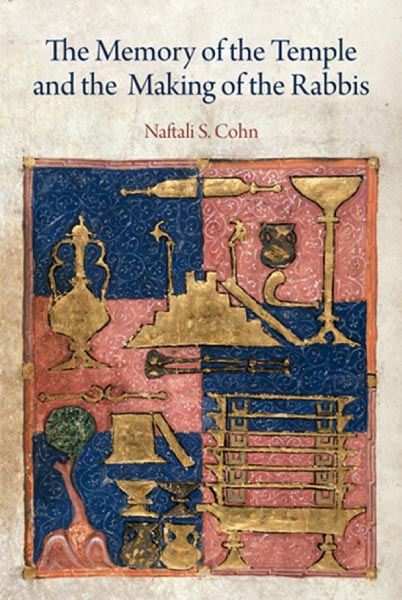 The Memory of the Temple and the Making of the Rabbis The Memory of the Temple and the Making of the Rabbis
Naftali S. Cohn
Narrated by Steven Jay Cohen
Available from Audible
Book published by University of Pennsylvania Press
When the rabbis composed the Mishnah in the late second or early third century C.E., the Jerusalem Temple had been destroyed for more then a century. Why, then, do the Temple and its ritual feature so prominently in the Mishnah? Against the view that the rabbis were reacting directly to the destruction and asserting that nothing had changed, Naftali S. Cohn argues that the memory of the Temple served a political function for the rabbis in their own time. They described the Temple and its ritual in a unique way that helped to establish their authority within the context of Roman dominance.
At the time the Mishnah was created, the rabbis were not the only ones talking extensively about the Temple: other Judaeans (including followers of Jesus), Christians, and even Roman emperors produced texts and other cultural artifacts centered on the Jerusalem Temple. Looking back at the procedures of Temple ritual, the rabbis created in the Mishnah a past and a Temple in their own image, which lent legitimacy to their claim to be the only authentic purveyors of Jewish tradition and the traditional Jewish way of life. Seizing on the Temple, they sought to establish and consolidate their own position of importance within the complex social and religious landscape of Jewish society in Roman Palestine.
REVIEWS:
“A learned, nuanced, and well-written study of an important theme in a foundational text of rabbinic Judaism. Cohn shows that we must look outside rabbinic literature if we are to place the Mishnah in a meaningful context. Well done.”
—Shaye J. D. Cohen, Harvard University
|

